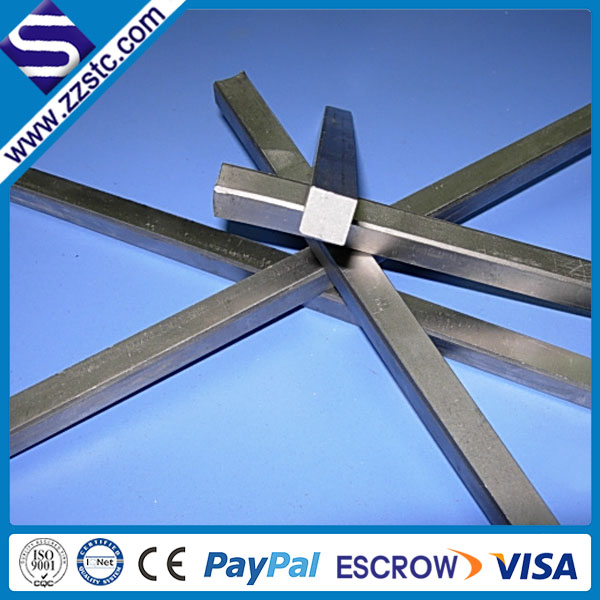Classification

The application of TC4 titanium alloy rod in petroleum refining
Submitted by admin on 11/13/2015
In most inorganic salts, TC4 titanium rods are completely inert and have excellent corrosion resistance. For example, in the production of electrolytic MnO2, the electrolyte is the neutral MnSO4 solution, which requires that the electrode is resistant to sulfate. The electrode is made of lead alloy and graphite, its effect is not good. After the use of titanium, the anode is not corroded, it becomes a semi permanent device.
In almost all organic acids and organic media, TC4 titanium rods have excellent corrosion resistance (except for formic acid, oxalic acid). In addition to methanol, titanium also has corrosion resistance to alcohol, aldehyde, ketone.
For example, in the petrochemical industry, using acetaldehyde to make acetic acid. Because of the serious corrosion of acetic acid, acetaldehyde, chloride and catalyst to stainless steel equipment, after using the titanium, the corrosion of the equipment in the production of acetic acid was solved. In order to make acetone, it also can use titanium material production equipment, Japan built acetone plant, which can produce thirty thousand tons titanium every year, and use titanium nearly forty tons.
Finally, TC4 titanium rod has corrosion resistance to wet H2S gas and humidity SO4 gas, ammonia and industrial atmospheric (it should be particularly careful to use titanium in small medium with hydrogen oxygen).
For example, in the oil refining industry, the equipment is often corroded by H2S, NH8, sulfide, chloride, using titanium equipment can solve the problem of corrosion. In oil refining, Titanium is mainly used in distillation tower, condenser, air cooler and other equipment. In the production of synthetic ammonia and urea, titanium is an ideal corrosion resistant material.

In almost all organic acids and organic media, TC4 titanium rods have excellent corrosion resistance (except for formic acid, oxalic acid). In addition to methanol, titanium also has corrosion resistance to alcohol, aldehyde, ketone.
For example, in the petrochemical industry, using acetaldehyde to make acetic acid. Because of the serious corrosion of acetic acid, acetaldehyde, chloride and catalyst to stainless steel equipment, after using the titanium, the corrosion of the equipment in the production of acetic acid was solved. In order to make acetone, it also can use titanium material production equipment, Japan built acetone plant, which can produce thirty thousand tons titanium every year, and use titanium nearly forty tons.
Finally, TC4 titanium rod has corrosion resistance to wet H2S gas and humidity SO4 gas, ammonia and industrial atmospheric (it should be particularly careful to use titanium in small medium with hydrogen oxygen).
For example, in the oil refining industry, the equipment is often corroded by H2S, NH8, sulfide, chloride, using titanium equipment can solve the problem of corrosion. In oil refining, Titanium is mainly used in distillation tower, condenser, air cooler and other equipment. In the production of synthetic ammonia and urea, titanium is an ideal corrosion resistant material.

------分隔线----------------------------




